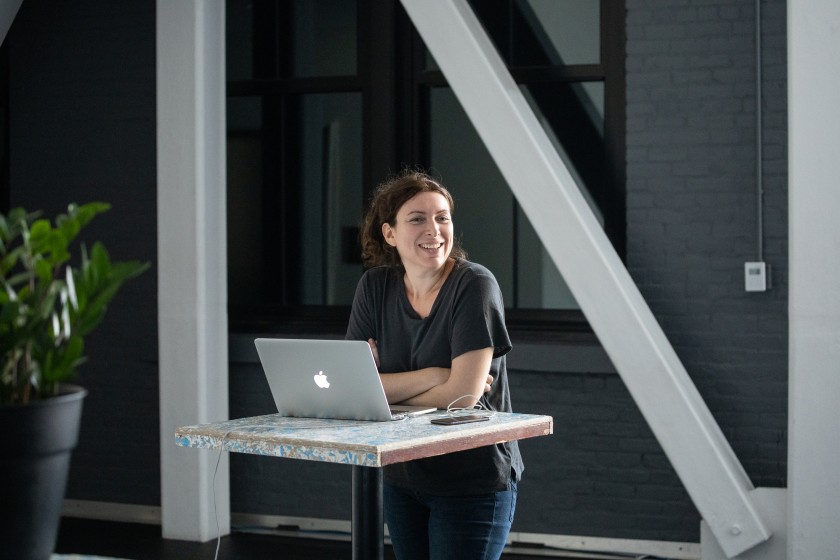
Dorsen: Algorithmic Theater
Sept. 25 , 2019. New-York. More
info
MacArthur Fellowship goes to director Annie Dorsen for ‘algorithmic theater’
Annie Dorsen, a director of algorithmic theater, has been named a 2019 MacArthur
Fellowship winner.
"What, exactly, is algorithmic theater? Dorsen has an answer, or many answers,
depending on how you break down her thoughts on the intersection of computer
technology and theater. Her first foray, the 2010 project “Hello Hi There,”
featured two computers onstage recontexualizing a 1971 television debate between
the philosopher Michel Foucault and the linguist Noam Chomsky. Each night the
custom-made chatbots, with the aid of computer programs, performed a different
live text as if it were a new conversation.
"In 2013 Dorsen went to the next level with “A Piece of Work,” in which she took on “Hamlet.” The formidable play was broken down and rebuilt using computer technology. Sometimes the play was compressed, other times individual lines found themselves in wild new contexts. Only the third act was performed by a human, who spoke lines created by the machines.
"Her most recent project, “Infinite Sun” (2019), features 11 laptops that “sing” continuously from morning until night using an algorithm that generates songs using mantras from various spiritual traditions.
"Her inspiration came while reading a 1950 essay by the English mathematician and computer scientist Alan Turing. “Computing Machinery and Intelligence” explored the idea of artificial intelligence, with Turing arguing that because humans don’t actually know what thinking is, humans cannot produce actual thinking in a machine. He went on to say that humans could, however, produce the effect.
“When I read this I thought, ‘Aha, in a way theater is about producing an effect or an illusion,’” Dorsen said. “The relationship between computer science, machine learning and theater is a strong one, and a fertile ground for exploration. Both have to do with the uncertainty between truth and illusion — what you can trust, how you know what you know, and do your eyes deceive you.”
"She said that 10 years ago she was thinking about significant changes in the nature of knowledge, how people discerned fact from fiction and how they justified belief from opinion. Today she sees a crisis that can be witnessed in politics, the economy and social relationships.
“That crisis is something that theater is very familiar with,” Dorsen said. “It’s the essence of the form. The actors are really doing something, but at the same time it’s an illusion, a fiction. It’s happening in a metaphoric space, and that double nature of theater seems very similar to computer-generated language.